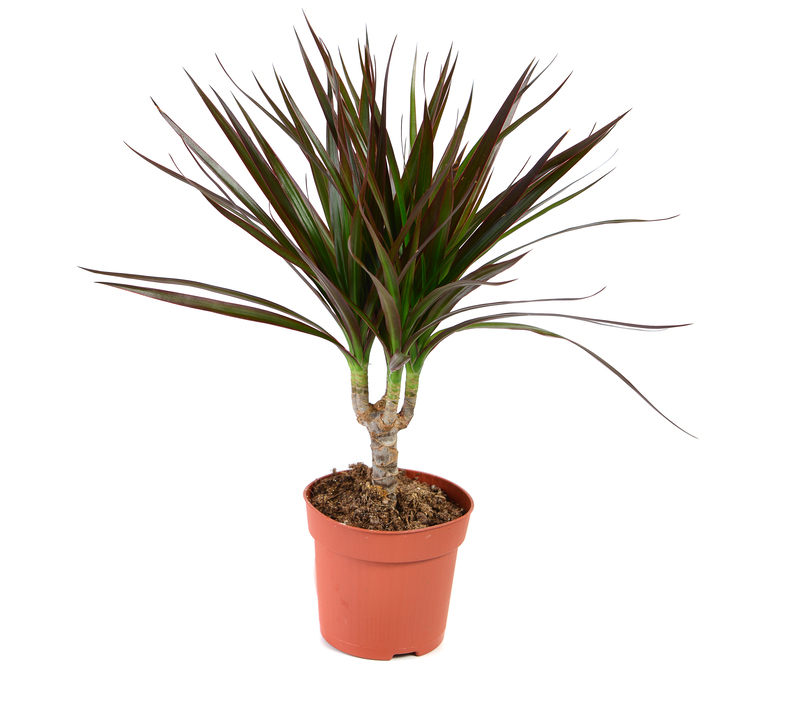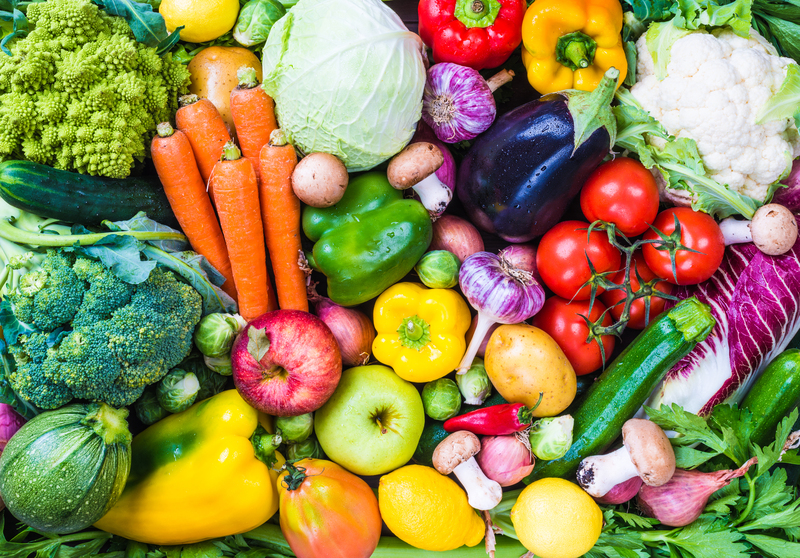The Journey from Organic Waste to Lush Land
Posted on 24/06/2025
The Journey from Organic Waste to Lush Land: Transforming Trash into Treasure
Turning organic waste into a lush and fertile landscape is a fascinating journey that speaks to the very heart of sustainability. Every year, households, farms, restaurants, and industries produce millions of tons of biodegradable waste. Yet, with the right approach, this discarded material can be transformed into a resource that fuels plant growth and rejuvenates depleted soils. This comprehensive article will guide you on the elaborate journey from organic refuse to rich land--unpacking the methods, benefits, and innovative techniques that make this transformation possible.
Understanding Organic Waste
Organic waste refers to biodegradable materials derived from plants or animals. Common sources include:
- Kitchen scraps: Fruit and vegetable peels, eggshells, coffee grounds
- Yard waste: Grass clippings, leaves, branches
- Livestock manure
- Paper products: Non-glossy paper, cardboard, natural fibers
- Agro-industrial byproducts: Crop residues, husks, pulp
Despite being a natural part of life, organic waste is often sent to landfills, where it decomposes anaerobically, releasing harmful methane gas. However, converting organic waste into fertile land helps minimize environmental pollution while creating valuable soil amendments.

Step 1: Collection and Segregation of Organic Waste
The journey from waste to fertile land begins at the source. Proper collection and segregation are paramount. Households, businesses, and municipalities must actively separate organic materials from plastics, metals, and non-biodegradable waste. This not only improves the efficiency of composting but also enhances the quality of the final product.
- Home Composting: Install kitchen bins to segregate food scraps and garden waste for easy collection.
- Community Initiatives: Neighborhood composting programs enable large-scale collection and minimize transportation emissions.
- Commercial Sorting: Industries utilize automated sorting lines to channel organic wastes for further processing.
Best Practices for Waste Segregation
- Label bins clearly to avoid contamination.
- Educate family or staff about what qualifies as organic waste.
- Keep wet organic waste covered to reduce odor and pest attraction.
Step 2: Composting - Nature's Recycling Process
Composting is the cornerstone of converting organic waste to lush land. Through the action of microorganisms, organic materials are biologically decomposed into a nutrient-rich, soil-like substance known as compost. This step is crucial in the transformation process, and several methods are available:
Traditional Composting
A backyard compost pile or bin is perhaps the simplest method. Here's how it unfolds:
- Mix browns (carbon-rich items like dried leaves, sawdust) and greens (nitrogen-rich materials like food scraps, grass clippings).
- Ensure a ratio of approximately 2:1 (browns to greens) for optimal decomposition.
- Maintain moisture levels akin to a wrung-out sponge and turn the pile periodically to aerate.
- The process takes 2-12 months, producing dark, crumbly compost ready for use.
Vermicomposting
Utilizing worms, particularly red wigglers, this accelerated process breaks down organic waste efficiently. The result is vermicompost--a potent soil enhancer containing valuable nutrients and beneficial microbes.
Industrial or Large-Scale Composting
Facilities use windrow systems, aerated static piles, or in-vessel composters to handle large volumes of organic refuse from cities or agricultural operations. This method is faster and highly regulated to ensure pathogen destruction and minimal odor emission.
Step 3: Curing and Testing the Compost
Once the composting process is complete, the material enters the curing stage. During this period, the organic matter continues to stabilize and mature. Finished compost should be:
- Dark brown and earthy-smelling
- Free from recognizable food particles
- Coarse or fine-textured depending on screening
Testing is critical before applying compost to soil. Laboratories analyze levels of nutrients, salts, and contaminants to ensure the product is safe and effective for agricultural or gardening use.
Step 4: Integrating Compost into the Land
The true magic of the journey from organic refuse to fertile land happens when thick layers of compost are integrated into garden beds, farmland, or degraded landscapes. This phase catalyzes a profound transformation, resulting in lush, productive, and sustainable earth.
Benefits of Compost Application:
- Enriches Soil: Compost replenishes essential nutrients and fosters the growth of beneficial microorganisms.
- Improves Soil Structure: Enhances aeration and water retention, reducing erosion and runoff.
- Boosts Plant Health: Organic matter enables robust root systems and improves disease resistance.
- Reduces Chemical Dependency: Less reliance on synthetic fertilizers and pesticides.
- Locks in Carbon: Composting sequesters carbon in the soil, fighting climate change.
Techniques for Application
- Mulching: Spread a layer around plants to conserve moisture and suppress weeds.
- Soil Amendment: Mix compost into native soil to improve garden beds and crop fields.
- Top Dressing: Apply to lawns for improved turf growth.
- Erosion Control: Apply to banks and embankments to stabilize soil and foster vegetation growth.
Closing the Loop: The Eco-Cycle of Organic Matter
In sustainable agriculture and regenerative gardening, the journey from organic waste to rich, productive land is a continuous cycle. Each crop season, plant residues are returned as compost, closing the nutrient loop and sustaining ecosystems for generations.
Advanced Innovations in Organic Waste Transformation
Biochar and Soil Health
Beyond composting, technological innovations like biochar offer additional ways to recycle organic waste. Produced by heating organic material in the absence of oxygen, biochar acts as a long-term carbon sink and boosts soil fertility. It is used to improve nutrient retention and soil water-holding capacity, providing yet another pathway to lush landscapes.
Compost Tea and Liquid Fertilizers
Compost extracts or "compost tea" are brewed liquids rich in nutrients and beneficial microorganisms. These teas can be sprayed directly on plants or soil, promoting growth and disease resistance.
Urban Green Spaces and Organic Waste
Cities are finding creative ways to leverage organic waste. Rooftop gardens, vertical farming systems, and community orchards all benefit from compost derived from household and restaurant waste. This not only greenifies urban landscapes but also reduces municipal waste disposal costs.
Environmental Impact: Why the Journey Matters
Why is this transformation so important? The responsible management of organic waste has far-reaching benefits:
- Reduces Landfill Waste: Diverts tons of biodegradable material from overcrowded landfills.
- Mitigates Greenhouse Gas Emissions: Decreased methane production lessens global warming impact.
- Supports Biodiversity: Healthy soils nurture a vast web of life, from earthworms to pollinating insects.
- Promotes Sustainable Agriculture: Recycling nutrients supports long-term food security.
Global Case Studies
- India: Community composting turns city waste into fertilizer for urban farming projects.
- Germany: Strict sorting rules and biogas digesters fuel power plants and enrich farmlands.
- United States: Many states incentivize large-scale composting and soil restoration efforts.

How to Start Your Own Journey: Practical Steps for Home Gardeners
1. Set Up a Composting Station
- Choose a shady, accessible spot in your yard.
- Use a bin, tumbler, or simple pile structure.
- Add alternating layers of browns and greens.
- Maintain moisture and aerate regularly for faster decomposition.
2. Collect Waste Thoughtfully
- Keep food scraps, coffee grounds, eggshells, and yard clippings for composting.
- Avoid adding meats, dairy, or heavily processed foods, as they attract pests and slow down decomposition.
3. Use Finished Compost to Nourish Your Land
- Top-dress flower beds, vegetable gardens, and lawns.
- Amend soil before planting new crops.
- Share surplus compost with neighbors or community gardens.
Conclusion: Building a Greener Future Through Organic Waste Management
The journey from organic waste to lush land is more than a practical solution for recycling--it is a movement towards a healthier, more sustainable planet. By closing the loop between consumption and regeneration, every individual and community has the power to turn discarded organic matter into a vibrant foundation for life.
Embrace composting and join the millions worldwide who have witnessed their waste blossom into living, thriving soil. Whether you are a home gardener, a small farmer, or an urban dweller, you can take steps today to contribute to this positive cycle. The transformation of organic waste into richness and renewal stands as a testament to nature's ingenuity--and our responsibility to help steward its resources wisely.
Frequently Asked Questions About Organic Waste to Fertile Land
-
Q: Can all organic waste be composted?
A: Most plant-based wastes are suitable, but care should be taken with meats, oils, and diseased plants. It is best to stick with vegetable scraps, paper, coffee grounds, and yard waste. -
Q: How long does it take for organic waste to become compost?
A: Depending on method and materials, it can take from 2 months (vermicomposting) to 12 months (traditional composting). -
Q: Will composting smell bad?
A: Well-managed composting, with proper aeration and moisture, produces a pleasant, earthy scent. Offensive odors are usually the result of anaerobic decomposition or contaminated material.
Begin your journey today--watch as your organic waste is reborn, nurturing a lush and thriving land tomorrow.

